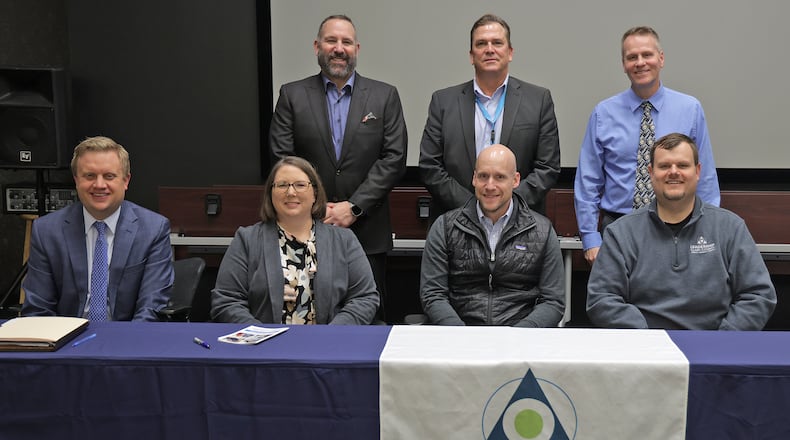Clark-Shawnee Superintendent Brian Kuhn talked about the state budget process, which began last week. Every two years school leaders have to wait to see what will come out of the budget bill, because Kuhn said it’s not a discussion with school leaders, but a legislative process.
“Is school funding going to be the fair funding model that’s going to continue as has been promised or was projected to take place? Who knows. What are the little things that get snuck in the budget bill? We don’t know,” Kuhn said.
For example, after the last budget bill, Kuhn said school guidance counselors had to spend 15-20 hours at a construction site or a training site for construction workers, so they have a better understanding of that field and then in theory can take it back and push construction trades as an option for students.
“That winds up in the budget bill. So a school counselor to renew their license has to go out to these places or training sites ... that’s the stuff that (we have to sit back) and watch and who knows what will hit, but the budget bill’s always one to watch,” he said.
Southeastern Superintendent David Shea said he wants people to understand that the state is still funding schools on fiscal year 2022 information, but that the cost of everything is still going up.
“So go ahead and take what you were making in 2022 and try to live your life on 2022 ... Well, that doesn’t sound so fair to me,” Shea said." I don’t know about you guys but four years in arrears on what you’re getting and you’re funding, to me is an issue, but that’s just how they work it."
Kuhn said the state is only funding 75% of what they think schools should be spending based on how much things cost in 2022.
“School funding is hard to understand and it’s hard to communicate to stakeholders,” he said.
Shea also pointed out some of the executive orders that President Donald Trump has signed have implications for federal funding for schools.
“I don’t feel like this administration is looking to give more money. I feel like they’re looking to step back from the money that they were already giving,” he said.
Federal funds are used for special education staffing and services, plus free or reduced-price lunch, among other things.
Shea said if federal funds get reduced, local schools will have to dip into their general fund and money from local tax levies, which in turn may lead to budget cuts or deficit spending.
“That’s really what districts will be faced with. That’s reality. You’re going to be looking at what is more essential ... I bet people won’t have any idea of what districts have to spend on related services,” he said.
Parents bill of rights
Springfield City School Superintendent Bob Hill said implementing the recently passed House Bill 8 will be a “little tricky.”
According to the Ohio Legislative Service Commission, the new law requires public schools to adopt a policy that promotes parental involvement in the school system and establishes requirements regarding sexuality content, school-provided healthcare services, and student mental, emotional, and physical health and well-being.
“It’s been dubbed the parents bill of rights, and requires some super-sensitive communication that is potentially in conflict with some of the ethical codes that our educators take,” he said. “It’s going to take some training and some real recognition on the part of our educators on how to interact that appropriately and legally.”
Data privacy law
Greenon Superintendent Darrin Knapke said Senate Bill 29, enacted last fall, focuses on enhancing data privacy for students, and the school district has had to “jump through some hoops.”
Part of the new law permits a school district or a technology provider to electronically access or monitor a student’s activity on a school-issued device only in specific limited circumstances and requires the school district to notify parents of any permitted access, according to the Ohio Legislative Service Commission.
The law prohibits any person from releasing or permitting access to educational support services data concerning any student attending a public school for any reason.
“Most of us as districts have a platform that we use to keep an eye on students. We might have a principal that’ll get an alert that a student is looking up (something specific),” Knapke said. “That red-flags to our administrators that we act on that, contact the parents, and we’re getting involved, counselors are getting involved, and it obviously helps save kids' lives.”
About the Author


